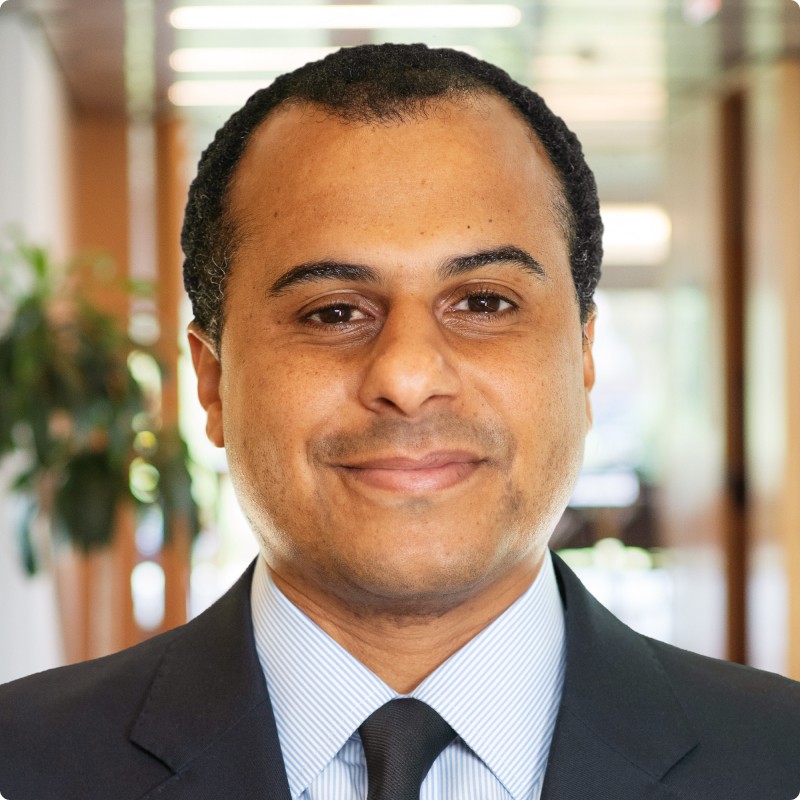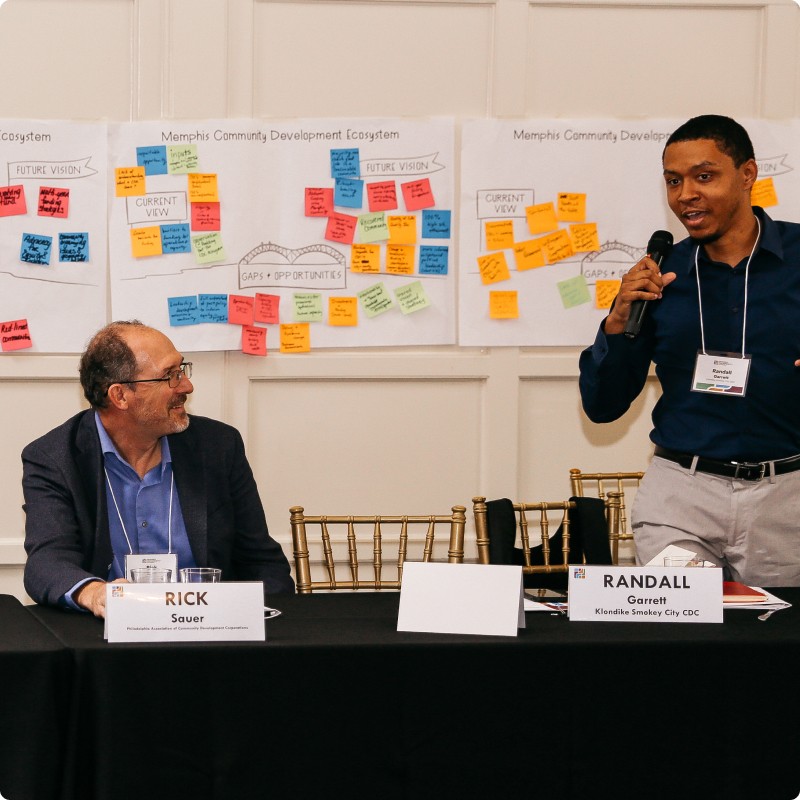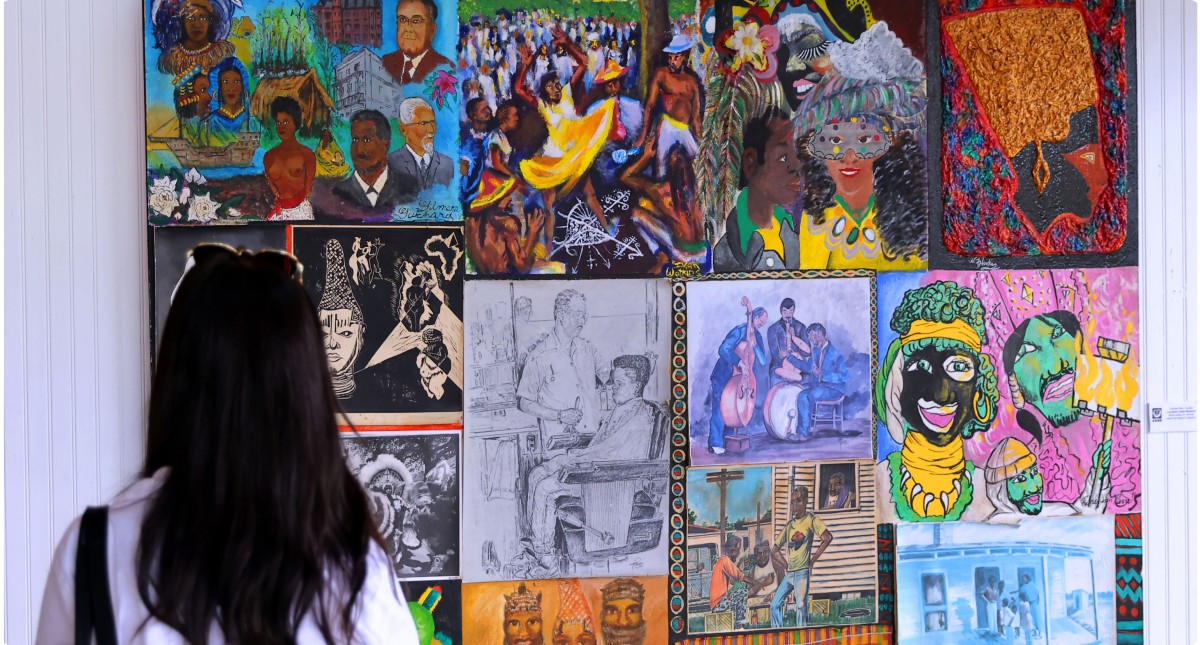Kresge’s deep commitment to working in Detroit inspires new place-based practice.
How far back can you trace work related to this program?
Kresge began to support community development outside of Detroit after Hurricane Katrina hit New Orleans.
In 2012, the foundation adopted the Urban Opportunity Framework to ensure that each of the hundreds of unique grants and investments the foundation awarded each year were tightly focused on one overarching goal: that American cities grow more inclusively so that disparities among their residents are eliminated, and all have full access to equitable life opportunities.
When was this Program officially established?
The American Cities Program was officially established in 2015, formalizing an existing portfolio of national and place-based community development grants. The program reflected the need for an urban development practice at the foundation and signified our commitment to expanding opportunity in American cities by developing a consistent approach to how Kresge’s investments land in place.
It was designed to assist the program teams in the construction of investments that meet the needs of specific cities by leveraging the full breadth of Kresge’s programmatic and social investment toolkit. It was also intended to hold a portfolio of grants in support of the cities it served and led to additional grants, conference sponsorships and speaking engagements that supported our institutional commitment to expanding opportunity in cities.

What is an example of an early investment in this space?
In 2016, the American Cities Program committed more than $1.2M to its Drawing on Detroit initiative. The grant facilitated a collaboration with the USC Center on Philanthropy and Public Policy to launch a series of convenings focused on a pivotal question: How might revitalization efforts used in Detroit be relevant to other cities?
The multi-stage inquiry resulted in a national forum on leadership and the future of American cities bringing together more than 170 practitioners from 15 different cities discussing the community development lessons from Detroit. Following the Drawing on Detroit forum, the program awarded grants to 16 cities interested in utilizing community development approaches from Detroit in their own hometowns.


Why has this area been historically important to Kresge?
“Kresge’s American Cities efforts, and our place-based practice, evolved from a decade of comprehensive, cross-sectoral and interdisciplinary grantmaking led by our Detroit Program,” says VP Programs Benjy Kennedy. “And our ongoing work in Detroit continues to inform our approach to supporting community-driven solutions that strengthen neighborhoods. Together, the American Cities and Detroit programs are seeking to address the complexity of urban opportunity structures and striving for measurable results through concentrated investments in cities.”



How do the current strategies reflect or build on Kresge’s history?
“The American Cities Program’s current evolution continues to support the foundation’s conviction that we must understand and work deeply in cities to move forward the field of urban development,” says Managing Director Chantel Rush Tebbe. “Place-based community development allows the foundation to examine the effectiveness of approaches and meet our mission of ensuring everyday people living with low income in American cities truly benefit from our efforts. American Cities can benefit from Kresge’s direct grantmaking, as well as the lessons we’ve learned from our work in Detroit and the city-to-city peer networks, national technical assistance and national intermediaries we fund.”


Q: Why has this area been historically important to Kresge?
(Quote from an MD, Rip or former Kresge employee)
Lorem ipsum dolor sit amet, consectetuer adipiscing elit. Aenean commodo ligula eget dolor. Aenean massa. Cum sociis natoque penatibus et magnis dis parturient montes, nascetur ridiculus mus. Donec quam felis, ultricies nec, pellentesque eu, pretium quis, sem. Nulla consequat massa quis enim. Donec pede justo, fringilla vel, aliquet nec, vulputate eget, arcu. In enim justo, rhoncus ut, imperdiet
Q: How do the current strategies reflect or build on our historical investments in this area?
(Quote from an MD, Rip or former Kresge employee)
Lorem ipsum dolor sit amet, consectetuer adipiscing elit. Aenean commodo ligula eget dolor. Aenean massa. Cum sociis natoque penatibus et magnis dis parturient montes, nascetur ridiculus mus.
How far back can you trace work related to this program?
The foundation’s exploration of using non-grant forms of capital to advance its mission began in 2008. That year Kresge made its first five social investments, all loans between $1 million to $2.5 million.
Then in 2009, the foundation responded further to the financial crisis by issuing more than a dozen no-interest loans to nonprofits directly involved in stabilizing and supporting communities.
“Like so many things, the origins of the Social Investment Practice had its roots in crisis,” said Kresge Trustee Jim Bildner, who was instrumental in moving Kresge to begin using these tools in its work. “2008 was a profound moment for our country and for vulnerable populations. The impact of the fiscal crisis hit every element of the preexisting safety net. This created an enormous supply and demand problem that the foundation had not seen since the Great Depression.”
“The idea to make these no-interest loans came from the Trustees themselves, which was rare,” said Bildner, “and took less than 30 days from idea to reality.”
Q: When was this Program officially established? (Year and short explainer)
In 2012, Kresge hired its first managing director of social investments, Kimberlee Cornett. In 2015, the foundation expanded this area of work with a $350 million commitment – representing 10% of its corpus at that time – to deploy into impact investing.

Q: What’s an example of an early investment in this space?
IFF, $2.5 million, 2008
This 3% interest loan was paired with a $500,000 grant and supported IFF, a Community Development Financial Institution that provides below market-rate real estate loans, facilities planning and development, research projects and community planning initiatives. With the combination of a structured PRI and a grant, our support enabled the expansion of IFF's loan and advisory services out of Illinois, a critical step in expanding its ability to provide access to new sources of capital, while building IFF’s organizational capacity to sustain program operations.

